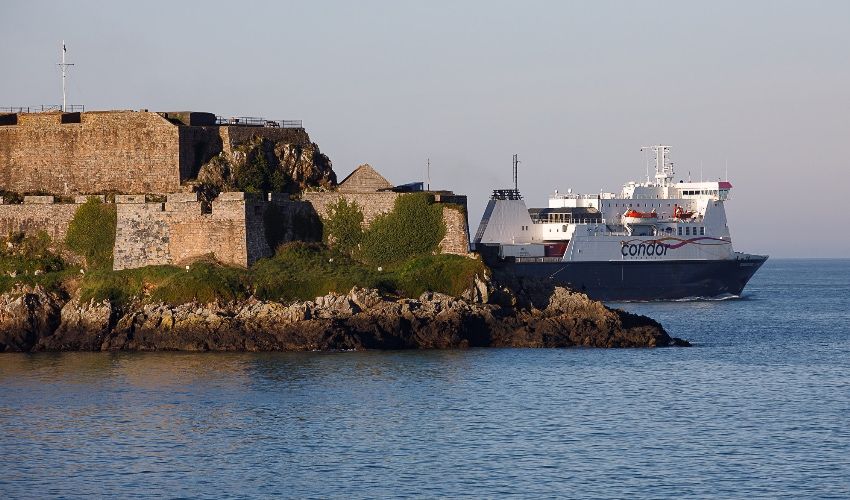


Condor Ferries has confirmed that they have "recently introduced safety equipment for handling fires from electric vehicles" amid growing concerns over the threat of lithium-ion battery fires on ships.
It comes as fears are rising that an electric vehicle blaze would cause more damage than a standard fire on a ferry as they are more aggressive, harder to extinguish and, in some circumstances, can cause explosions.
Last year, an electric vehicle fire onboard roll-on roll-off cargo ship, the Felicity Ace, sparked a 13-day blaze.
The ship eventually sunk off Portugal's Azores islands with 4,000 vehicles onboard worth around $400million.
Latest look at the Felicity Ace. Not looking good for the cars inside pic.twitter.com/qUBCcHLCsn
— Mike Schuler (@MikeSchuler) February 18, 2022
The Azorean harbourmaster said that lithium-ion batteries in electric cars ignited, and the fire could have only be extinguished with special equipment.
Earlier this year, in Norway – where nine in 10 new cars sold are electric or hybrid – ferry operator Havila Kystrute banned all electric, hybrid and hydrogen cars from its ships after an external risk analysis was made on behalf of the company.
“A possible fire in electric, hybrid, or hydrogen cars will require external rescue efforts and can endanger people on board and the ships,” said Havila Kystrute CEO, Bent Martini.
The risk analysis found that fires in electric cars are considered more difficult to extinguish than fires in cars powered by petrol and diesel.
This is due to the flammable electrolyte that is stored within the lithium-ion battery cell. When these batteries fail or overheat, they release flammable, toxic gasses that can spark a fast-spreading fire that is extremely difficult to extinguish.

Pictured: Norwegian ferry operator Havila Kystrute has now banned all electric, hybrid and hydrogen cars from its ships due to increased fire danger.
In response to the concerns, a Condor Ferries’ spokesperson said: "Condor has been transporting hazardous goods on its vessels for over 75 years so we are familiar with the relevant procedures and regulations.
"Items currently carried comprise heavy oil, petrol, paint, solvents, fertiliser, hay, liquid and compressed gases, along with different types of batteries, including lithium-ion which are commonly fitted in electric vehicles.
"We have recently introduced safety equipment for handling fires from electric vehicles and all our crews attend fire safety training which is refreshed periodically."
They added:"Condor is also closely working with the ferry industry through the UK Chamber of Shipping for the [UK] government to agree standard guidelines and procedures for the carriage of electric vehicles."
Comments
Comments on this story express the views of the commentator only, not Bailiwick Publishing. We are unable to guarantee the accuracy of any of those comments.